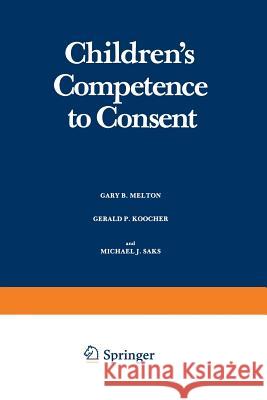Children's Competence to Consent » książka
topmenu
Children's Competence to Consent
ISBN-13: 9781468442915 / Angielski / Miękka / 2012 / 286 str.
Kategorie:
Kategorie BISAC:
Wydawca:
Springer
Seria wydawnicza:
Język:
Angielski
ISBN-13:
9781468442915
Rok wydania:
2012
Wydanie:
Softcover Repri
Numer serii:
000080124
Ilość stron:
286
Waga:
0.38 kg
Wymiary:
22.86 x 15.24 x 1.52
Oprawa:
Miękka
Wolumenów:
01
Dodatkowe informacje:
Wydanie ilustrowane











